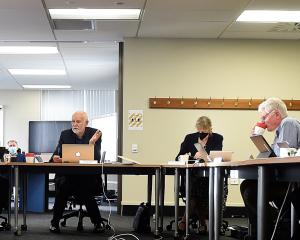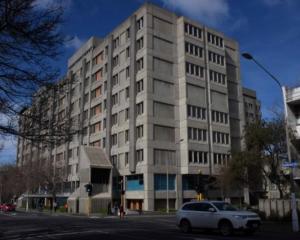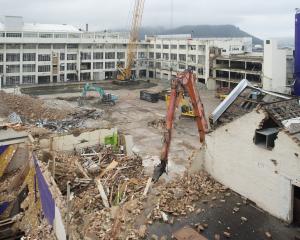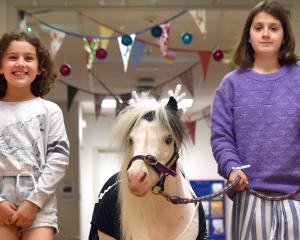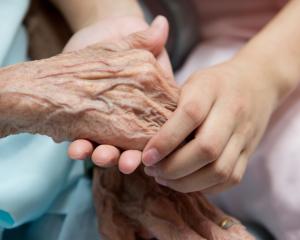Ricky Collins (51) spent nearly five weeks in Wakari Hospital's specialist rehabilitation service (Isis) after urgent brain surgery at Dunedin Hospital in October, 2011, following a brain haemorrhage.
The financial administrator is still off work but is expected to make a full recovery.
Last week, the Otago Daily Times reported Isis beds would be cut from 26 to 16. The ward has had low occupancy for some time because of Ministry of Health and ACC funding cuts. The DHB planned more rehabilitation in the community, and had started consulting affected staff, some of who might lose their jobs.
Mr Collins said he was concerned Southern District Health Board was "piggy in the middle", forced to make the cuts because of lack of funding.
The support from Isis both as an inpatient and since his discharge had been outstanding, he said.
He would not have liked to have been discharged any sooner than he was. He feared there was no fat to trim in the service. Patients were discharged when appropriate, followed by support in the home.
"The process used by Isis to provide rehabilitation to people affected by neurological damage is a holistic one, with numerous therapists, nurses and doctors all working towards the goal set for each individual under their care, towards that person's recovery," Mr Collins said.
He had researched academic papers and found Wakari's approach to neurological rehabilitation mirrored best practice endorsed by world experts.
The timing of the cuts was ironic, given they coincided with fundraising to strengthen neurosurgery in Dunedin, Mr Collins said.
"To me, it makes sense that both the critical surgery phase and the rehabilitation process should go hand in hand, as they are both critical aspects of the same issue." Dunedin stroke survivor Warren Palmer, and his wife, Loas, were concerned by the loss of social respite, a four-bed contract the DHB would cease providing as part of the ward downgrade. Social respite provided short-term care for those usually looked after at home.
"Every worker is entitled to a holiday, but it looks as if family carers will fall through the cracks," Mr Palmer said.
"Will I have to spend time in an old people's home so that she can have a break?"
Queenstown mother Karen Boulay, who cares for her 18-year-old son who had a serious car crash two years ago, is also worried by the loss of social respite in Dunedin.
"If we do not have that, what is left?"
She called on the DHB to elaborate on its plan for a district-wide review of rehabilitation services, but was sceptical of claims the process would result in care distributed evenly through the DHB. Dunedin was the most logical place to provide certain services, she believed.
DHB mental health and community services general manager Elaine Chisnall said the board was working with the Health Ministry to advise people who used social respite.
There would be a new provider of the service, which would not be a rest-home, she said.
Access to specialist inpatient services would remain.
"People who require inpatient rehabilitation will still have the same level of access, which will be based on clinical best practice and in line with other providers of specialist rehabilitation around the country," Ms Chisnall said.
"The closure of some beds now is based on a number of beds that have not been occupied in the ward."
The district review would examine how to provide rehabilitation evenly across the DHB's area, including Central Otago.
The board was working closely with the South Island Neurosurgery Service regarding neuro-rehabilitation, she said.


